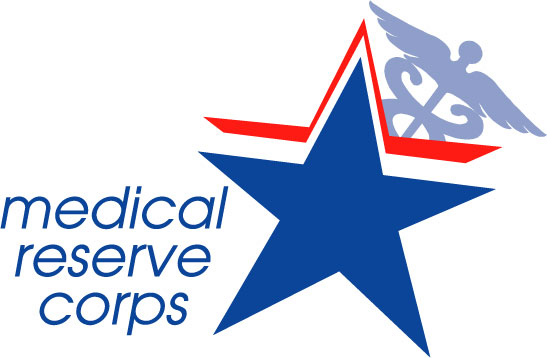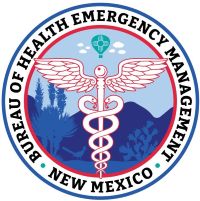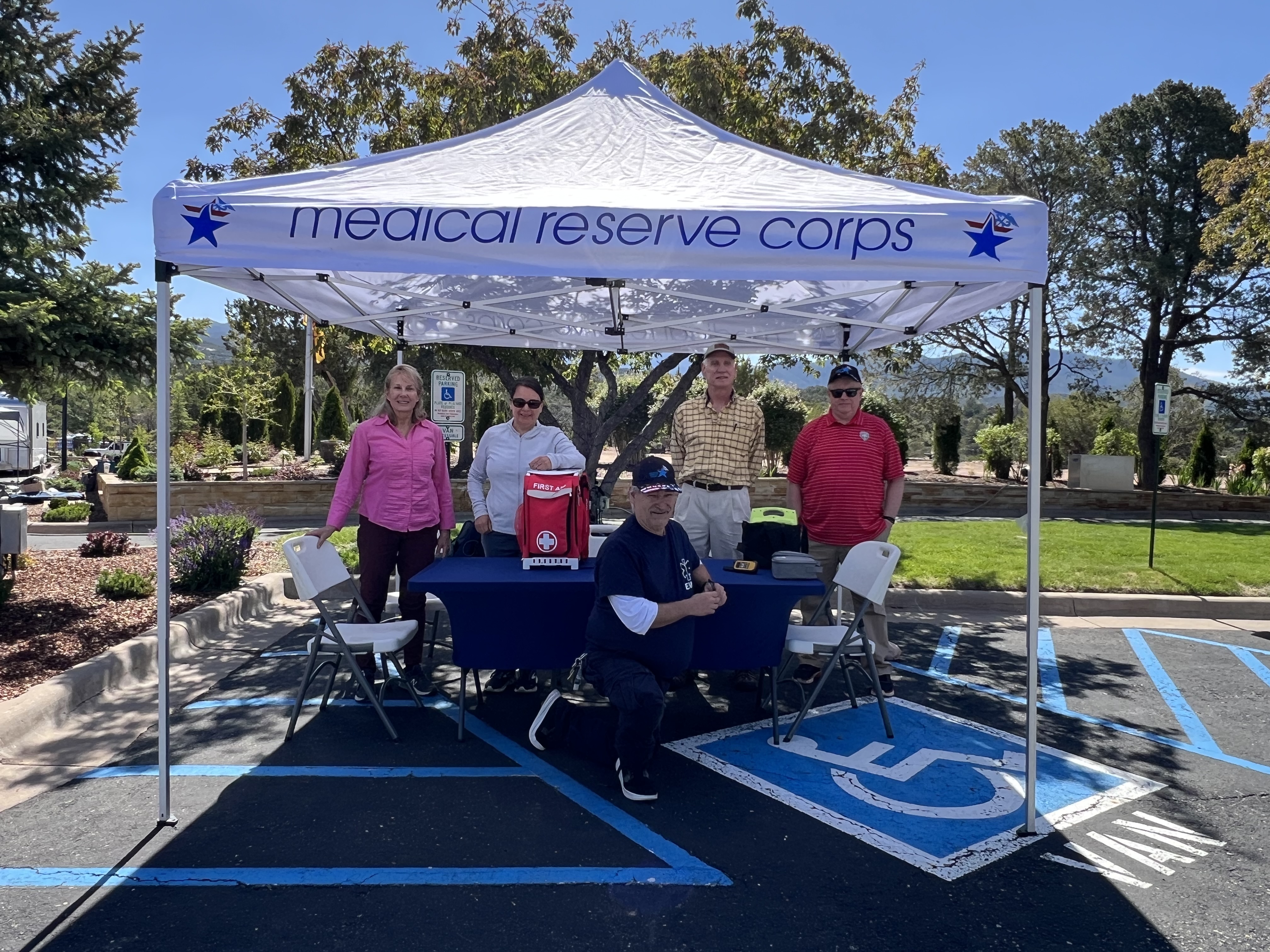New Mexico Medical Reserve Corps
The Medical Reserve Corps (MRC) is a community-based civilian, volunteer program that helps build the public health infrastructure of communities nationwide. Each MRC unit is organized and trained to address a wide range of challenges from public health education to disaster response.
The New Mexico Medical Reserve Corps’ mission is to augment local community health and medical services during a disaster, public health emergency or community public health event with pre-identified, trained and credentialed volunteers.

Volunteers Building Strong,
Healthy, and Prepared Communities

The New Mexico Medical Reserve Corps (NM MRC) is made up of medical and non-medical volunteers from around the state who serve to help their fellow citizens in time of need. Since August 2005, the New Mexico Department of Health (NM DOH) Bureau of Health Emergency Management (BHEM) has ensured New Mexico has a stable and dedicated group of volunteer professionals available for deployment in New Mexico or in other parts of the country.

Click here to join the Medical Reserve Corps Serves.
Who are MRC Volunteers
NM MRC volunteers respond quickly to all types of events, such as providing medical care at a shelter during floods or wildfire, staffing a community vaccination event, supporting emergency preparedness events, trainings or exercises or manning a preparedness booth at a community health fair.
NM MRC is looking for volunteers with varying skill levels and experience. We are currently recruiting for licensed healthcare providers as well as lay and non-healthcare volunteers.
Licensed Healthcare Providers
Volunteers needed include clinical social workers; dentists; EMTs/paramedics; laboratory technologists and technicians; marriage and family therapists; medical records and health information technicians; mental health counselors; nurses; nurse aides; pharmacists; physicians; physician assistants; psychologists; radiologic technologists and technicians; respiratory therapists; and veterinarians.
Lay & Non-Healthcare Volunteers
NM MRC also needs volunteers with various non-medical skill sets, including management, logistics, construction, government services, mortuary science, police and firefighters, educators, sales, sciences, and transportation. Retirees and students are also encouraged to register.
How to become a Volunteer
All volunteers will need FEMA ICS-100, ICS-200, ICS-700 and ICS-800 course certifications. The courses are free and online, and do not expire.
You will need a FEMA Student Identification (SID) number to sign up for the FEMA courses.
DHS-FEMA General Admissions Application
Before you begin:
- Registration should take less than 30 minutes.
- You will need to create a volunteer account.
- Gather your professional licenses, certifications, competencies, trainings, and contact and other personal information before beginning the registration process.
- Required fields are designated with an asterisk (*). If required information has not been entered, you will be alerted during the registration process.
- If you are inactive on the site for more than 15 minutes, you will be logged out.
- Do not use the refresh, stop, back or forward buttons on the browser and only single click buttons on a page.
- All communications are encrypted.
During registration:
- You will be asked to upload your FEMA certificates and any other training courses, such as CPR or First Aid.
- A signed Code of Ethics is required. You will provide electronic acknowledgement during the registration process.
What to expect after you submit your application:
- A criminal background check will be performed.
- Your license and/or certification(s) will be verified.
- Under Federal and State Laws/Guidelines, a medical or healthcare professional volunteer must not have a sanctioned license and/or practice under a board order.
- Individuals whose name appears on the US Department of Health and Human Services Office of the Inspector General’s List of Excluded Individuals/Entities will not be permitted to volunteer with NM MRC.
- Once approved, you will receive more information and an orientation from a member of MRC leadership.
Click here to join the Medical Reserve Corps Serves.
Deployment Considerations
When a need for volunteers is identified, you will be contacted with details about the event, such as location, duties, how long you may be needed, and if housing or meals are provided. You have the right to refuse any deployment request for any reason, and do not need to provide an explanation.
Deployment to an emergency or disaster site where there are limited resources and physical hardships may be more difficult for some than others. Most deployments are no more than 14 days. All volunteers are expected to be self-sufficient and able to take care of their own needs. When responding to a request for volunteer availability, please let the unit leader know of any concerns or questions you have.
Ask yourself the following questions before deploying
- Do you have children or adult dependents? Will you be able to arrange for their care while you are gone? Can these arrangements be easily extended if your assignment runs longer than anticipated?
- Do you have pets? Will you be able to arrange for their care while you are gone? Can these arrangements be easily extended if your assignment runs longer than anticipated?
- Is there someone who can take care of your home while you are gone (take in the mail and newspapers)? Are your bills (utilities, rent) paid and up to date?
- Are you taking any prescriptions that may impact your ability to function in an emergency or disaster situation, such as causing drowsiness? Does your medication require strict administration times or need refrigeration?
- Do you have a health condition such as significant mobility concerns or heart condition that would prohibit your participation? Do you have difficulty bending or stooping? Can you sit or stand for extended periods of time?
- Do you have allergies to medications, foods, or insect bites?
- Do you have a medical condition such as asthma or diabetes which could worsen due to the difficult conditions at an emergency or disaster site?
- Do you have a psychological condition such as anxiety disorder or depression which may prohibit your participation in a disaster response?
- Have you had a recent emotional or psychological event which would make you unable to participate effectively in a disaster response?
- Do you have special dietary requirements which you may not be able to follow while at an emergency or disaster site?
Need More Information?
Contact Juli Sommers at 505-469-0547 or juli.sommers@doh.nm.gov.

